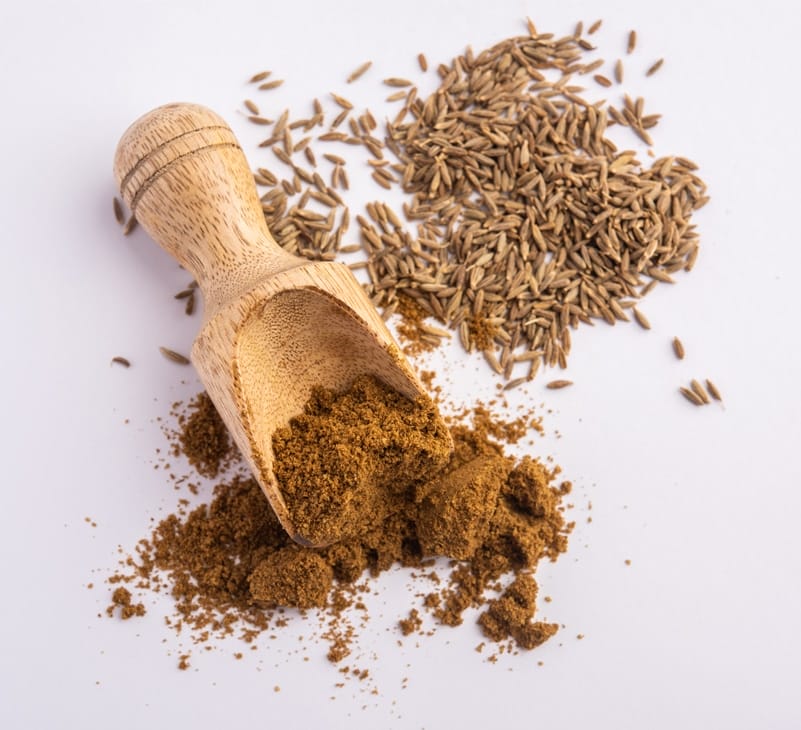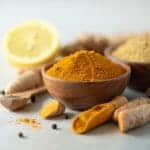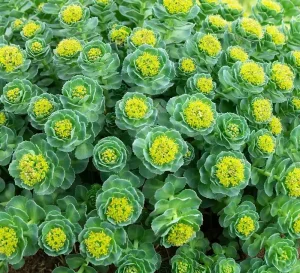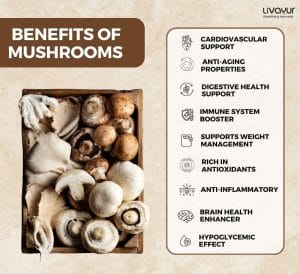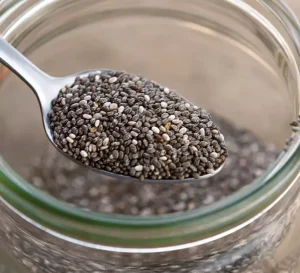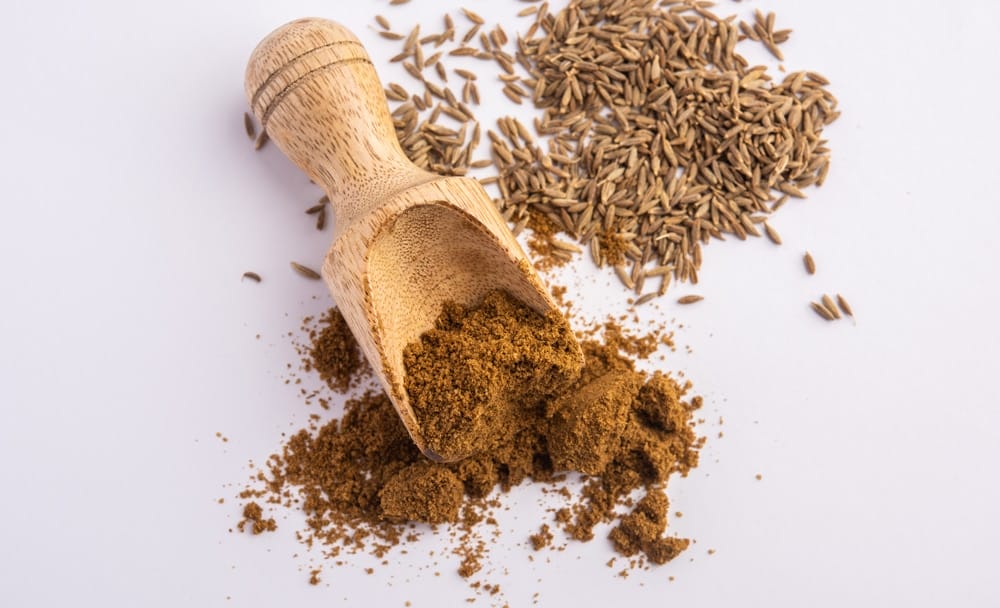
Fennel, also known as Saunf, is an aromatic Indian spice with numerous culinary and medicinal uses. It is a cooling spice packed with vitamin C and many other nutrients. The seeds of this herb are known for powerful antioxidant, anti-inflammatory and antibacterial properties that help treat several digestive and respiratory ailments. In India, there are numerous saunf uses. Fennel seeds are popularly eaten after meals to stimulate digestion.
In this article, let us learn about the various benefits of saunf, its uses, side effects and more!
Nutritional value of Fennel Seeds/Saunf [1]
Fennel seeds are packed with nutrients and hence, the health benefits of saunf seeds are immense. Let us explore the nutritional value of saunf.
| Nutritional Components | Value per 100 grams |
| Water | 90.2g |
| Energy | 31kcal |
| Protein | 1.24g |
| Fat | 0.2g |
| Ash | 1.05g |
| Calcium | 49mg |
| Iron | 0.73mg |
| Magnesium | 17mg |
| Potassium | 414mg |
| Vitamin B6 | 0.047mg |
Fennel Seeds: An Ayurvedic Perspective
Ayurveda mentions many valuable medicinal properties and benefits of eating saunf.
According to Ayurveda, fennel seeds exhibit Laghu (light to digest) and Rooksha (dry) qualities and have Madhura (sweet), Katu (pungent) and Tikta (bitter) taste. They help pacify all the three Doshas in the body and provide a cooling effect that helps soothe the nerves, elevate mood and boost mental health. Thus, there is a host of benefits of saunf mentioned in Ayurveda.
Benefits of Fennel Seeds Backed by Ayurveda
Boosts Digestion
One of the many advantages of eating saunf is its ability to manage digestive health. Fennel seeds are rich in volatile oils that stimulate the secretion of digestive juices and enzymes in the body, thereby promoting digestion. In Ayurveda, fennel seeds are also known to treat various gastrointestinal diseases such as heartburn, flatulence, bloating, irritable bowel syndrome, ulcerative colitis and gastroesophageal reflux disease (GERD).
-
Relieves Gastritis
One of the most popular saunf uses is in treating gastritis. Powered with strong carminative and antispasmodic properties, fennel seeds help relieve gastritis and treat abdominal cramps caused due to indigestion.
-
Treats Constipation
Fennel seeds serve as an excellent natural laxative and help treat constipation and abdominal discomfort. The dietary fibres found in fennel seeds further stimulate the secretion of bile and gastric juices and regulate bowel movements.
-
Cures Respiratory Disorders
Powered with phytonutrients, fennel seeds help clear the blocked sinuses and relieve asthma symptoms. Furthermore, fennel seeds are rich in expectorant properties that help treat several respiratory ailments, such as bronchitis, cough and nasal congestion.
- Learn more about Asthma symptoms
Regulates Blood Pressure Levels
Fennel seeds contain abundant levels of potassium that helps to dilate the blood vessels, regulate heart rate and stabilise blood pressure levels in the body.
-
Promotes Lactation
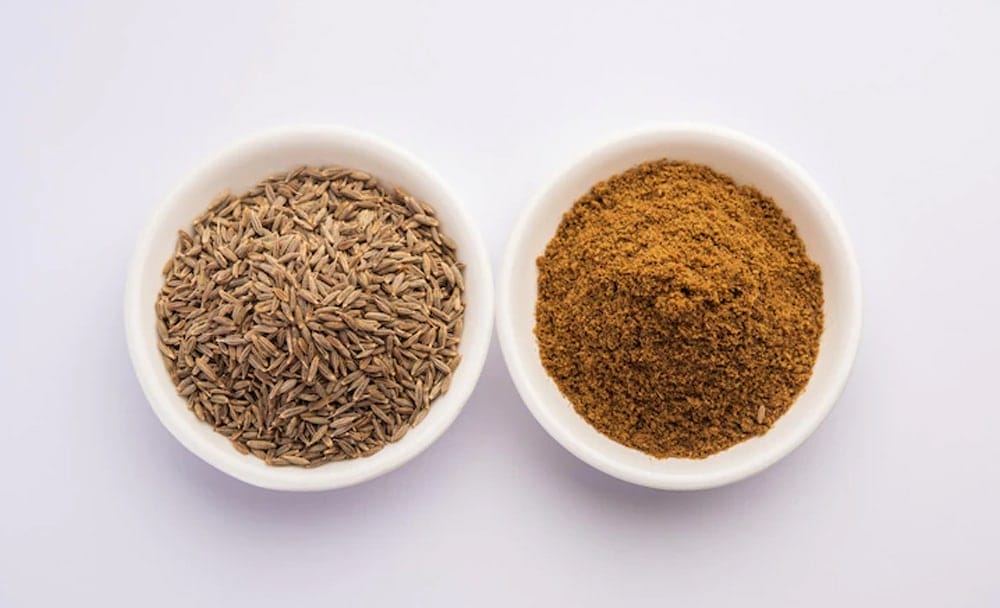
Fennel seeds contain anethole, a compound known for its galactagogue properties. Hence, fennel seeds help increase breast milk production in new mothers and promote lactation.
-
Prevents Bad Breath
Fennel seeds secrete a sweet and mild liquorice flavour in your mouth which helps freshen your breath. In addition, the antibacterial properties of fennel seeds help fight the bacteria that cause bad breath, thereby improving your oral hygiene.
-
Supports Vision
Imbued with vitamin A, fennel seeds are known to improve eyesight and treat watery and inflamed eyes. They are also vastly used to reduce the symptoms of glaucoma and slow down the progression of cataracts.
-
Controls Blood Sugar Levels
Blessed with essential oils and anethole, fennel seeds help regulate blood sugar levels in the body and manage diabetes. Furthermore, fennel seeds are also enriched in vitamin C, beta-carotene, antioxidants and essential minerals that help improve insulin sensitivity in the body.
-
Promotes Weight Loss
Fennel seeds enhance digestion, regulate appetite and boost metabolism, which in turn helps shed excess fat from the body. In addition, fennel seeds are also imbued with diuretic properties that help eliminate harmful toxins and excess fluids from the body, further contributing to healthy weight loss. Ayurveda extensively mentions the uses of saunf for weight loss.
-
Augments Skin Health
Fennel seeds are rich in powerful antimicrobial and antioxidant properties, which help prevent various skin disorders and promote skin health. They are also blessed with anti-ageing properties that help reduce wrinkles and slow down the premature ageing of the skin.
-
Relieves PMS Symptoms
In Ayurveda, fennel seeds are vastly used to alleviate many menstrual symptoms, such as hot flashes and abdominal cramps. They are also an effective Ayurvedic remedy to relieve many menopausal symptoms.
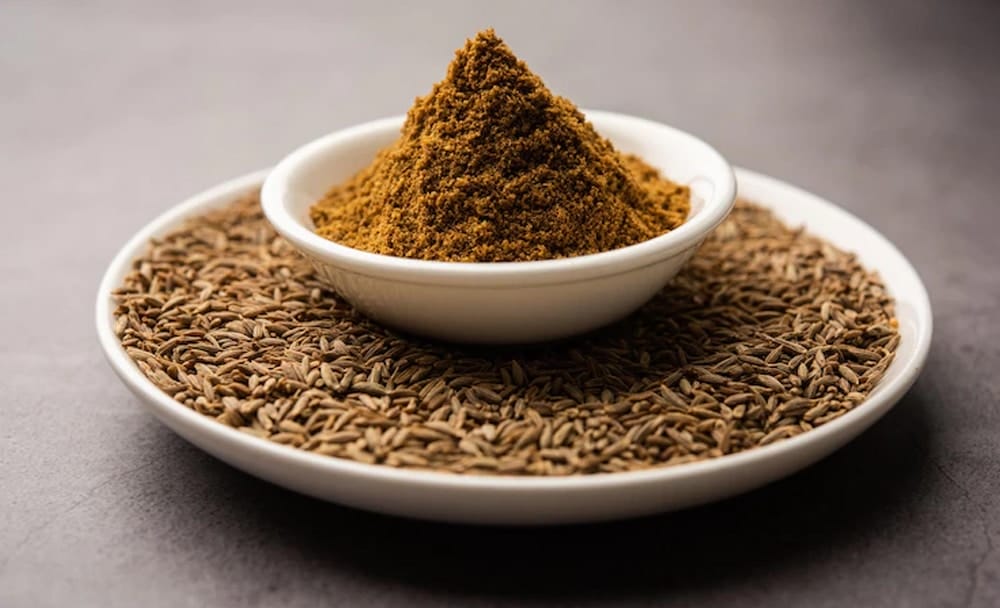
-
Prevents Osteoporosis
A low level of oestrogen is one of the leading reasons for osteoporosis. Fennel seeds mimic the role of oestrogen in the body and aid in the regeneration of the bones. They help boost the overall bone health and prevent the breakdown of bone tissue.
How To Use Fennel Seeds?
There are a number of saunf uses. Some of the ways in which you can use fennel seeds are:
- Chew on lightly roasted or raw fennel seeds before or after meals to enhance digestion.
- Make tea with fennel powder or fennel seeds and drink it once or twice every day. You can also add cumin and coriander and make CCF tea for added benefits.
- Use fennel seeds as a spice and add them to your foods.
Side Effects of Fennel Seeds
Saunf side effects are not many and it is usually safe for everyone in moderate quantities. However, Ayurveda recommends not taking fennel seeds during pregnancy as it is high in estrogenic properties.
The Final Takeaway
Fennel seeds are a storehouse of nutrients like vitamin C, vitamin A, calcium, iron, zinc, manganese, etc. They are enriched with many medicinal properties and help improve heart health, digestion, metabolism, etc. The benefits of saunf seeds are many. Incorporate fennel seeds in your diet and daily regimen and yield their many health benefits.
Disclaimer: This article is from a health and wellness perspective only and does not constitute medical advice. Kindly seek the help of a trained medical practitioner before initiating any treatment.
FAQs
What happens if we eat saunf daily?
Volatile oils and antioxidants abound in fennel seeds. The advantages of eating saunf daily include effective weight loss, reduced inflammation, enhanced heart health, and stimulated digestion.
What are the side effects of fennel seeds?
There have been no documented negative consequences of fennel seed consumption. However, reactions to common foods and medicines may vary across individuals. Thus, you must contact your healthcare practitioner immediately if you encounter any side effects from consuming fennel seeds.
Who should avoid fennel?
Pregnant women can safely consume fennel seeds. However, consuming a lot of fennel seeds should be avoided. It is advised that you consult with your doctor to determine the appropriate dosage for your health conditions before giving excessive doses of saunf to children or the elderly.
How much fennel seed should I eat per day?
You can eat 1/2 teaspoon of fennel seeds twice a day after meals. For an even greater taste, try it with rock candy, or mishri.
What is the best way to consume fennel seeds?
Chewing fennel seeds is one of the best methods to consume them and is said to help with digestion, especially after meals.




